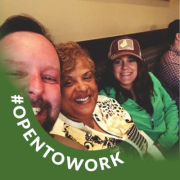Netsurion offers robust SIEM capabilities enhanced by managed services, facilitating efficient threat identification and response with real-time alerts and comprehensive reporting.



| Product | Market Share (%) |
|---|---|
| Netsurion | 1.0% |
| Secureworks Taegis Managed XDR / MDR | 6.0% |
| Laburity | 4.8% |
| Other | 88.2% |
| Type | Title | Date | |
|---|---|---|---|
| Category | Managed Security Services Providers (MSSP) | Oct 20, 2025 | Download |
| Product | Reviews, tips, and advice from real users | Oct 20, 2025 | Download |
| Comparison | Netsurion vs Secureworks Taegis Managed XDR / MDR | Oct 20, 2025 | Download |
| Comparison | Netsurion vs Check Point CloudGuard Network Security | Oct 20, 2025 | Download |
| Title | Rating | Mindshare | Recommending | |
|---|---|---|---|---|
| IBM Security QRadar | 4.0 | N/A | 90% | 211 interviewsAdd to research |
| Elastic Security | 3.9 | N/A | 86% | 65 interviewsAdd to research |
| Company Size | Count |
|---|---|
| Small Business | 9 |
| Midsize Enterprise | 7 |
| Large Enterprise | 7 |
| Company Size | Count |
|---|---|
| Small Business | 62 |
| Midsize Enterprise | 25 |
| Large Enterprise | 71 |
Netsurion stands out for its integration of SIEM, IDS, and vulnerability management. Its real-time threat alerts and dashboards enhance user response capabilities. With centralized logging from Windows, Linux, Cisco devices, firewalls, and Active Directory, Netsurion enables effective compliance support for HIPAA and PCI standards. Managed Threat Protection with the embedded MITRE ATT&CK Framework enhances threat intelligence, while its evolving interface aims to improve user interactions. However, some users find deployment and searching challenging, pointing to areas for improvement.
What are Netsurion's key features?Netsurion is frequently implemented in industries requiring comprehensive security monitoring and compliance, such as healthcare and finance. It aids businesses in consolidating security efforts, offering insights into user activities and system changes, an asset for companies lacking substantial internal resources.
Netsurion was previously known as Netsurion Managed Threat Protection, Netsurion EventTracker.
The Salvation Army, The FRESH Market, Pacific Western Bank, NASA, American Academy of Orthopaedic Surgeons (AAOS), and Talbot’s Stores
| Author info | Rating | Review Summary |
|---|---|---|
| Information Technology Manager at ProfitSolv | 4.5 | We use Netsurion as our security operations center and SIEM to manage telemetry and alerts. It's effective but currently lacks seamless log retrieval from S3 buckets. Sometimes its SOC is overly aggressive in notifications, needing adjustments to reduce unnecessary alerts. |
| Head of IT at a venture capital & private equity firm with 11-50 employees | 5.0 | We are a small company specializing in reinsurance in Bermuda. Netsurion Managed XDR enhances our cybersecurity by providing real-time alerts and vulnerability assessments, acting as a 24/7 security team and offering valuable insights and recommendations to strengthen our defenses. |
| Manager of Security and Networking at Shenandoah Valley Electric Cooperative | 4.0 | Netsurion enhances our security by offering effective integration and visibility, providing rapid alerts and thorough communication. While the GUI could be more intuitive, their flexibility and willingness to meet our needs distinguish them from other solutions, balancing quality and cost effectively. |
| CIO at a financial services firm with 201-500 employees | 4.0 | I use Netsurion Managed XDR for security events and incident management, benefiting from its analysis, efficient SOC team, and flexible solutions. It significantly boosts productivity, though it requires a powerful server. ROI is nearly 100% from labor savings. |
| Cyber Security Specialist at a financial services firm with 11-50 employees | 3.0 | No summary available |
| VP of IT Systems at Carteret-Craven Electric Cooperative | 4.0 | No summary available |
| IT Coordinator at a government with 51-200 employees | 3.5 | No summary available |
| IT Director at Global Connections Inc | 4.5 | No summary available |